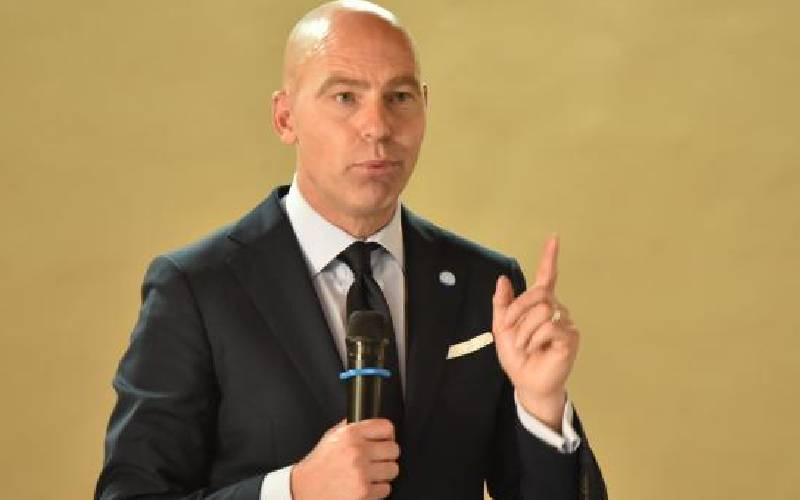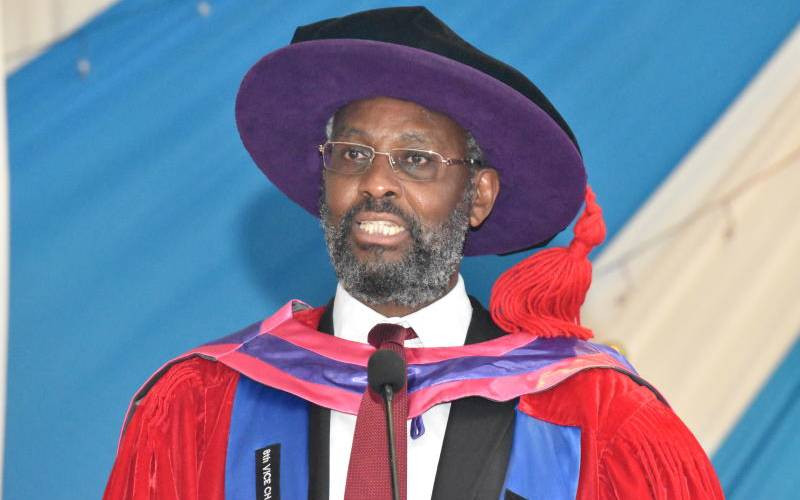By WAHOME THUKU
KENYA: For 40 years after independence, Kenya’s Judiciary was one of the most reclusive institutions. So mysterious were the “corridors of justice” that besides the Chief Justice, other personalities in the Judiciary had “no voice” of their own. The judges stuck to the doctrine that their voice, if any, could only be heard in judgments and rulings.
Until late 1980s, the Judiciary was a department in the Attorney General’s office, from where the government could muzzle and use it to perpetuate its political agenda.
Even after being made a separate department, it continued playing to the whims of the Executive until long after Kanu had been dislodged from power in 2002.
Those who made any mark in the Judiciary either did so in utmost complacence with the Executive or were the daredevils, consequently kicked out.
Among the first movers and shakers of the Judiciary was the first Chief Justice in independent Kenya, Sir John Ainley.
This was the man who in 1963 swore in Jomo Kenyatta as Prime Minister to usher in independence. He held the office from 1963 to May 1968, overseeing transition from colonialism.
After him came Chief Justice Dennis Justice Farell, who held the office briefly. His sudden exit came after reducing a political jail sentence handed down to KPU vice-president Bildad Kaggia from one year to six months. He was immediately forced out of office, giving way for the first African Chief Justice, Kitili Mwendwa.
Critics say Justice Mwendwa, the youngest CJ in Kenya’s history, did not make any remarkable contribution on the Bench, but left his prints on the political side of the Judiciary.
Within two years of his appointment, Mwendwa was in 1971 implicated in a coup attempt against President Kenyatta, one of the most serious allegations at the time. But rather than deal with him ruthlessly, the Kenyatta administration allowed him to resign quietly.
He later joined politics, becoming Kitui Central MP. He died in a car crash in September 1985. His successor, Sir James Wicks, a British expatriate, remains the longest serving CJ, holding the office from July 1971 to January 1982.
He oversaw the first power transition following the death of Kenyatta in 1978 and swore in Daniel arap Moi as President.
During his tenure, the University of Nairobi produced a high number of lawyers hence expanding the Judiciary.
But it was Chief Justice Chunilal Madan who left the biggest mark in the Judiciary, according to admirers. He was the first non-British judge in Kenya in 1961, having earlier served as a member of the Legislative Council (Legco) and as President of the Law Society of Kenya. Madan was on the frontline in agitating for independence. He was appointed acting CJ in October 1984, then confirmed in October 1985.
Seasoned lawyers who interacted with him have high accolades for Justice Madan, both for his great judicial mind and commitment to administration of justice.
Stay informed. Subscribe to our newsletter
“Before his retirement, Justice Chunilal B Madan bestrode the Kenyan judicial landscape with unequaled brilliance,” wrote senior lawyer Gitobu Imanyara back in 1987.
He was independent minded, and so respected that the President had no choice but to appoint him Chief Justice. Judgments by Madan continue to form the basis for determination of other cases decades after his departure.
He held office until November 1986 when he attained the compulsory retirement age of 74. His successor, Chief Justice Cecil Miller (Sr) was the opposite. He is still regarded as the embodiment of autocracy and manipulation of the Judiciary by the Executive.
Appointed CJ in November 1986, Miller became initiator and executor of State policies in the Judiciary. He is, however, credited with having fully Africanised the High Court and Court of Appeal and overseeing separation of the Judiciary from the office of the AG.
Chief Justice Bernard Chunga, who came later in 1999, made his mark by swearing in President Mwai Kibaki into office in 2002. Before then, Justice Chunga had had a controversy-ridden careers as chief prosecutor in the office of the AG.
He served as head of the Judiciary at a time when the country was going through political turmoil occasioned by the clamour for multipartism.
Justice Chunga was instrumental in prosecution of dozens of reformists during a crackdown on persons and groups described as unit-government.Apparently, one of those caught up in the crackdown was Dr Willy Mutunga, the current CJ who has made his landmark in judicial reforms.
 The Standard Group Plc is a
multi-media organization with investments in media platforms spanning newspaper
print operations, television, radio broadcasting, digital and online services. The
Standard Group is recognized as a leading multi-media house in Kenya with a key
influence in matters of national and international interest.
The Standard Group Plc is a
multi-media organization with investments in media platforms spanning newspaper
print operations, television, radio broadcasting, digital and online services. The
Standard Group is recognized as a leading multi-media house in Kenya with a key
influence in matters of national and international interest.
 The Standard Group Plc is a
multi-media organization with investments in media platforms spanning newspaper
print operations, television, radio broadcasting, digital and online services. The
Standard Group is recognized as a leading multi-media house in Kenya with a key
influence in matters of national and international interest.
The Standard Group Plc is a
multi-media organization with investments in media platforms spanning newspaper
print operations, television, radio broadcasting, digital and online services. The
Standard Group is recognized as a leading multi-media house in Kenya with a key
influence in matters of national and international interest.







